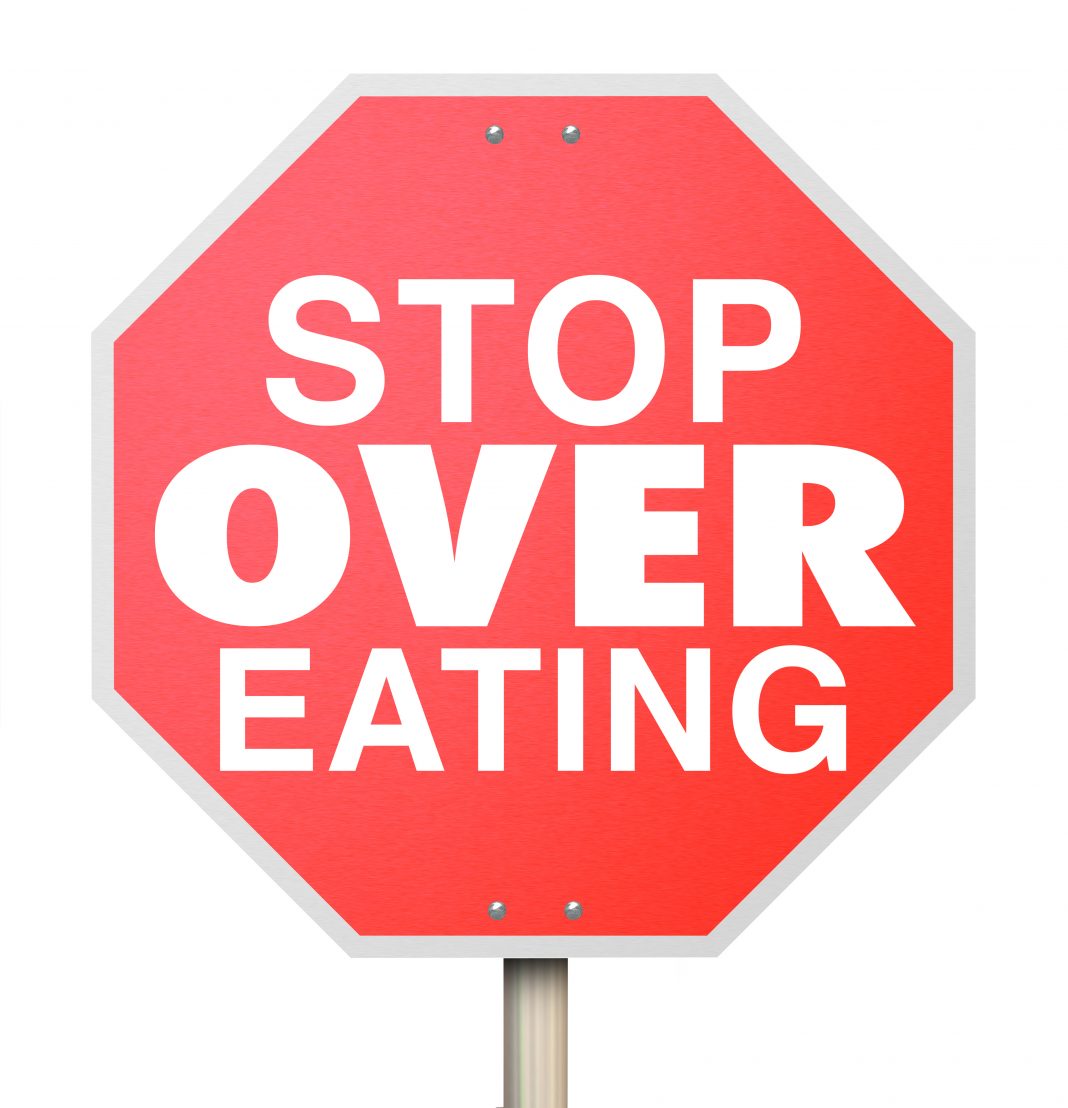How to stop overeating
Retraining our brains to ditch bad habits is a task in itself but that doesn’t mean it’s impossible. Here are some top tips that will help you, if you struggle with overeating, writes Vinita Alvares Fernandes
Growing up I remember my mother constantly telling me that my eyes were bigger than my stomach. I would be so hungry, load my plate with food, feel like a stuffed turkey and then wonder why I overate.
How much is truly too much?
If you have reached the brink and you need to cut back, how do you?
Eating too much at once or constantly going over the calorie limit throughout the day can be a hard habit to break, but it must be broken.
Signs of overeating may include —
- Eating beyond the point of being full.
- Finding yourself mindlessly eating because you’re bored, distracted, happy or sad. Basically, eating for reasons other than to fuel your body.
- Experiencing physical symptoms after eating. Like nausea, cramping, abdominal discomfort, gas, bloating, acidity or heartburn.
These are the short-term signs of overeating, but there are long-term signs too, like gaining unwanted weight, trouble losing those extra kilos and digestive issues.
Retraining our brains to ditch bad habits is a task in itself but that doesn’t mean it’s impossible. Here are some top tips that will help you, if you struggle with overeating —
- Portion control- Portion size and control is critical. Keep your eyeballs in check and you will see things fall into place. Familiarise yourself with recommended portion sizes and hold yourself accountable.
Ways to trick your brain into thinking you’ve eaten a full plate of food:
We are conditioned to clean our plates from childhood, so it is a tendancy to fill your plate with food as we tend to eyeball our portion sizes according to how big the plate is instead of our hunger and then force ourselves to finish all that is in the plate irrespective of if we are full or not. The way to overcome this is by eating in a smaller plate or bowl. Your plate size can tremendously help you stick to more appropriate portion sizes and avoid overeating. When you shave your meal in half from the beginning, you’ll be pleasantly surprised that it’s enough to fill you up. You can always go for another helping if you truly aren’t full.
NOTE: the norm is one fist full as snacks and two fists full for meals.
- Be mindful of why you’re eating and what you’re eating- Lots of us eat for comfort, to reward ourselves or make ourselves feel better. Unfortunately, this can lead to vicious cycles of emotional eating instead of eating to fuel your body. Before you eat, notice if you are actually hungry or not. There are countless reasons that will make you want to eat but there is one one reason that matters- you need to nourish and energise your body. Pay attention to your body’s cues and use food as what it’s meant to be- a way of nourishing your body and nothing else.
- Include a fibre source with meals and snacks- FIbre makes you feel full. FIbre helps you avoid overeating. Choosing high fibre foods will keep you feeling satiated for longer, reduce the amount of food you consume and help you avoid overeating.
- Check in as you chew- Do you tend to space out while you eat and just go hand to mouth until there’s nothing left on your plate? It’s time to pay attention while you eat.
- Pay attention to your plate and pay attention to your body.
- Remember, you are eating with the intention of feeling good when you’re finished, not feeling stuffed.
- If you start to feel full, resist the urge to clean your plate. Stop where you feel comfortably full and wait for 10 minutes.
- If you still feel hungry then continue eating, you’ll be shocked to realise that you’re fuller than you thought.
- Avoid skipping meals- Intermittent fasting, a diet trend at the moment, can lead to a feast of famine mindset which defeats the purpose of intermittent fasting and puts you in the express lane to overeating. Eat breakfast, lunch, dinner and healthy snacks in between to tide you over. If you’re starving, you will likely overeat. Eat regular meals.
- Snack happy and healthy- Eating healthy snacks is a great way to avoid scarfing down everything in sight. A healthy snack of protein and good fat will help you feel fuller for longer and keep your meals in check.
- Stay hydrated- We often mistake thirst for hunger. We think our body is asking for food when all it really needs is a glass of water. Staying hydrated throughout the day avoids wrong hunger cues, keeps you hydrated and keeps unhealthy food cravings at bay.
- Slow down- Eat slowly. DO NOT inhale your food. Not overeating simply means actually putting your fork and spoon down when you’re approaching the tummy full situation.
- Know and limit the foods that are easiest to overeat- Everyone has their own food weakness- things they just can’t resist. Most of us tend to overeat calorie-dense or processed foods (or treats). Be sure to avoid regularly gorging down on these empty calories. Pinpointing and knowing your trigger foods can help you avoid overeating.
- Eat at home- For the most part restaurants have large portions full of butter and batter to make the food taste better. Eating large, calorie laden foods on a daily basis will make overeating a worse issue. Eating home cooked meals, where you know what’s going into your body, is most definitely the healthier choice.
NOTE: All restaurants, five star to one star recycle oil, this is poison for the body. Eat at home regularly so you can monitor your quality and quantity of oil.
- Keep a food journal- Keeping track of what you eat using a food diary can help you avoid overeating. You don’t have to be so strict where you manage every single calorie going into your body, but an overall picture of your food day can help you monitor your meals, reduce your portions, avoid overeating and even aid weight loss.
Conclusion —
- Do you struggle with self control and find yourself reaching for seconds even though you’re full?
Chances are you’ve got a case of overeating.
- Do you find it to be a daily occurrence?
It’s time to take action.
- Do you follow crash diets?
They won’t help overeating in the long run.
Long-term lifestyle changes are the way to go.
Creating a balanced relationship with food can prevent nasty habits like overeating.
Stop the cycle of overeating once and for all by adopting some of these simple and doable tips.
Focus on sustainability.




